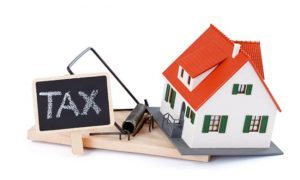 It’s that time of year where Land Tax assessments and invoices are being sent out by the Office of State Revenue. A question that is raised many times from clients is “WHY IS MY LAND TAX BILL SO HIGH?” There are a few reasons, but one of the main reasons that many people are not aware of, is that Office of State Revenue calculate the assessment on the AGGREGATED taxable value of all land held in the same ownership (excluding exempt land) at midnight on 30 June.
It’s that time of year where Land Tax assessments and invoices are being sent out by the Office of State Revenue. A question that is raised many times from clients is “WHY IS MY LAND TAX BILL SO HIGH?” There are a few reasons, but one of the main reasons that many people are not aware of, is that Office of State Revenue calculate the assessment on the AGGREGATED taxable value of all land held in the same ownership (excluding exempt land) at midnight on 30 June.
Generally, only land owned by the same owners is aggregated. For example, land that is owned solely by you is not usually aggregated with land you own jointly with another person or with land that you have an interest in through a company or trust. In such circumstances, a separate assessment notice is issued. The amount of land tax payable is calculated by applying the appropriate rate of tax to the aggregated taxable value of land in the same ownership. Use the online calculator to calculate your land tax liability, or refer table below.
| Aggregated Taxable Value of Land | Rate of Land Tax | |
| From | Not Exceeding | |
| $0 | $300,000 | Nil |
| $300,001 | $420,000 | Flat rate of $300 |
| $420,000 | $1,000,000 | $300 + 0.25 cent for each $1 in excess of $420,000 |
| $1,000,000 | $1,800,000 | $1,750 + 0.90 cent for each $1 in excess of $1,000,000 |
| $1,800,000 | $5,000,000 | $8,950 + 1.80 cents for each $1 in excess of $1,800,000 |
| $5,000,000 | $11,000,000 | $66,550 + 2.00 cents for each $1 in excess of $5,000,000 |
| $11,000,000 | $186,550 + 2.67 cents for each $1 in excess of $11,000,000 | |
So if you purchased a property last year which added to your total aggregated taxable value of land, then it’s likely that you’ve moved up the scale of tax you need to pay. This can mean your land tax bill could potentially increase from something quite minimal, into the $10,000’s quite quickly. Many home owners are not aware of this, until they get their higher than anticipated land tax bill, which comes as a very big shock.
Another common question we get asked. What properties are exempt from land tax?
Your primary place of residence (that you actually reside in), is exempt (unless owned in a trust or company). If you are living overseas or interstate and using one of your properties as your primary place of residence status of the property in regard to capital gains tax (CGT), please note THIS IS NOT relevant in determining whether the property is exempt from land tax. If you do not live in the property, you are still liable to pay land tax for this property.
This is why when people start to build their property investment portfolio, it is highly recommended that you engage a good financial planner or accountant and talk to them about what entity name and options you have on buying future properties. As once you’ve purchased them, you can’t change the entity name without paying stamp duty to transfer the ownership.
For full details on land tax, please see the below link, which has lots of useful information:
https://www.finance.wa.gov.au/cms/State_Revenue/Land_Tax/Land_Tax.aspx

